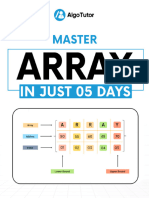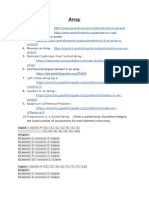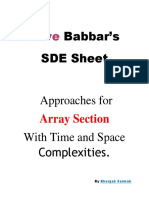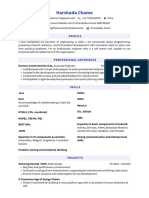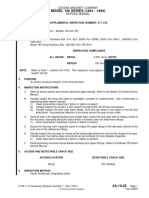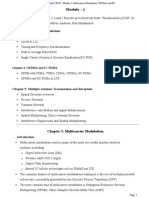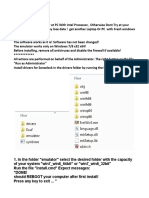0% found this document useful (0 votes)
71 views12 pagesMastering Arrays in 10 Days
The document outlines a 10-day training program on arrays, covering fundamental array concepts like indexing and operations, as well as more advanced topics like sorting, dynamic arrays, subarrays, rotation, and problems involving duplicates. Each day focuses on 1-2 key concepts accompanied by practice problems. The final days involve reviewing content and challenging problems.
Uploaded by
wahexi4619Copyright
© © All Rights Reserved
We take content rights seriously. If you suspect this is your content, claim it here.
Available Formats
Download as PDF, TXT or read online on Scribd
0% found this document useful (0 votes)
71 views12 pagesMastering Arrays in 10 Days
The document outlines a 10-day training program on arrays, covering fundamental array concepts like indexing and operations, as well as more advanced topics like sorting, dynamic arrays, subarrays, rotation, and problems involving duplicates. Each day focuses on 1-2 key concepts accompanied by practice problems. The final days involve reviewing content and challenging problems.
Uploaded by
wahexi4619Copyright
© © All Rights Reserved
We take content rights seriously. If you suspect this is your content, claim it here.
Available Formats
Download as PDF, TXT or read online on Scribd
/ 12
